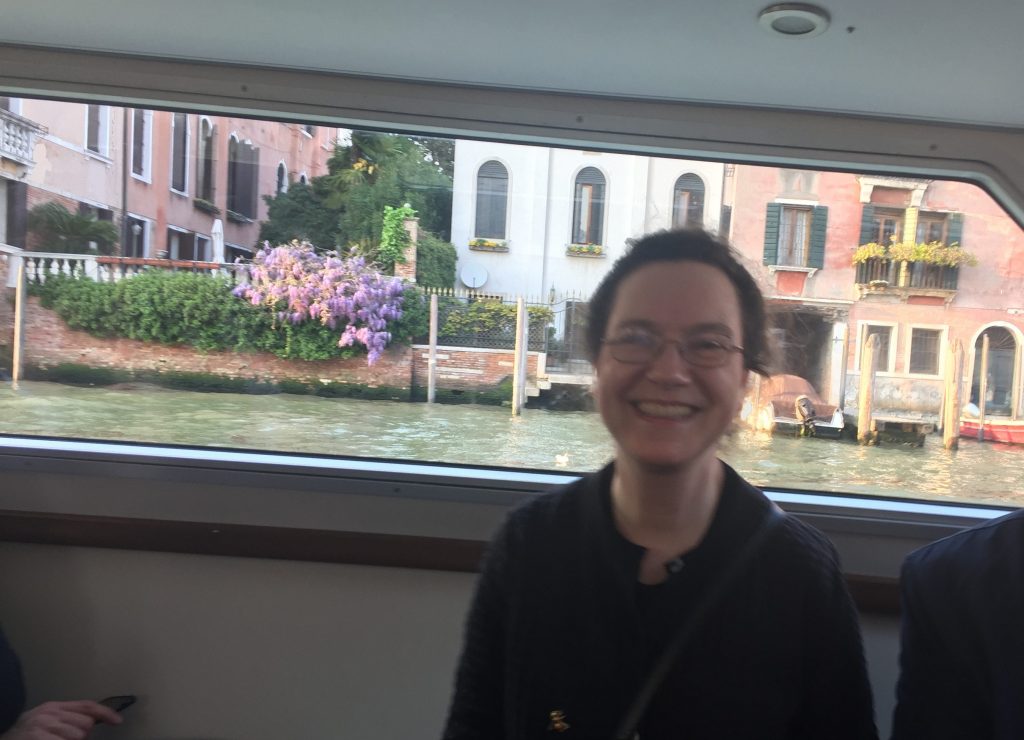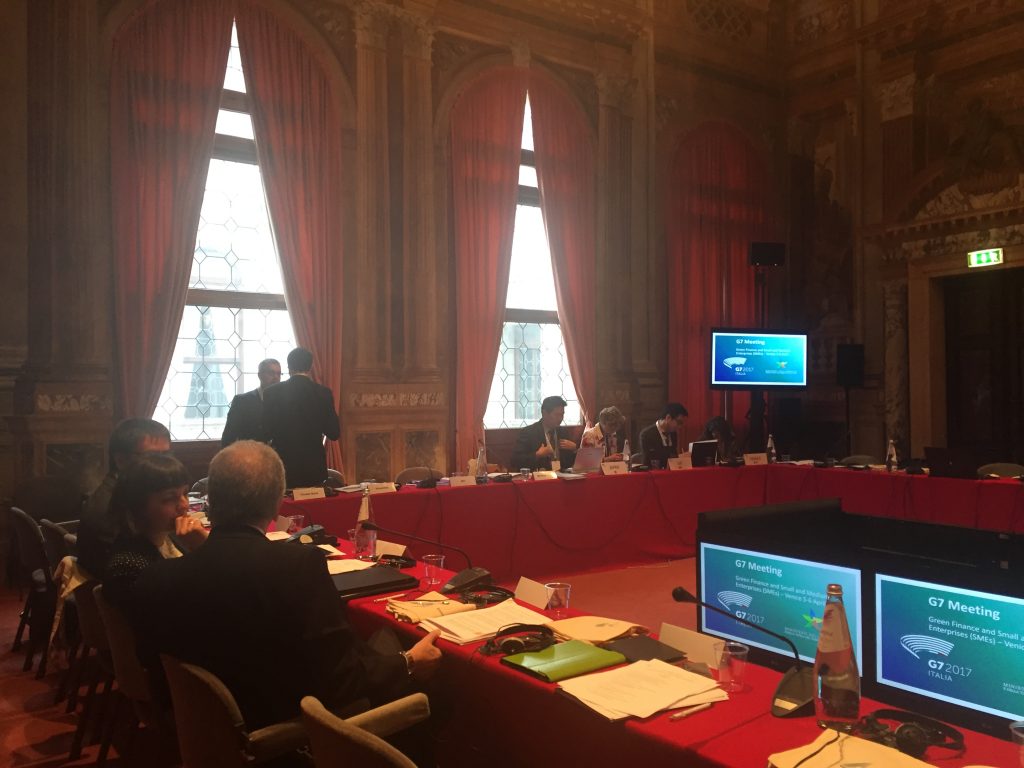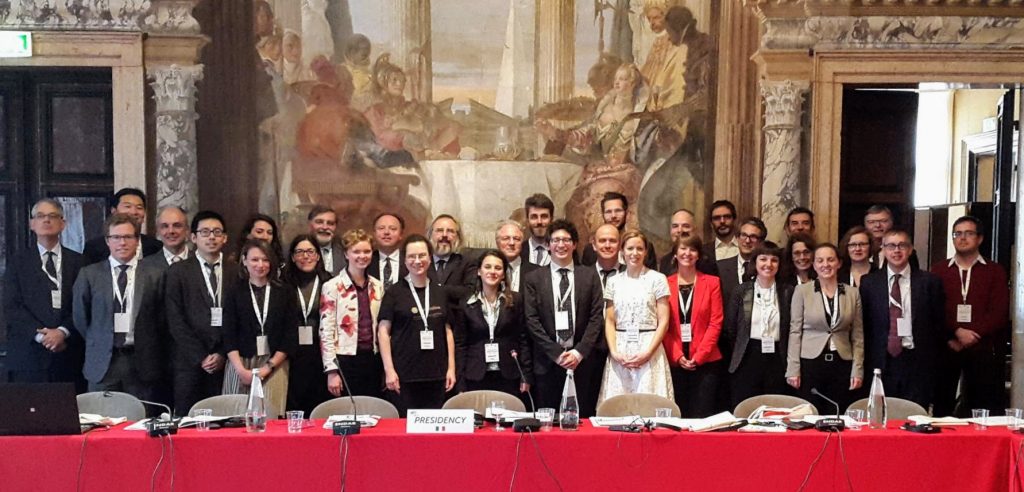hiveonline is proud to have been asked to support the UN Environment Programme Inquiry into Design of a Sustainable Financial System, recently accompanying them to the G7 Green Finance for SME policy making meeting in Venice. Six of the G7 governments (all except USA) were represented, with a combination of Environment and Financial departments sending delegates.
Following an opening speech by the State Secretary for the Ministry of the Environment, Ms Barbara Degani, Advantage Financial presented their views on the future, with Fintech and future finance driving the agenda but also highlighted the shortage of equity capital available for research and investment. UNEP Inquiry paper co-author Nick Robins presented a summary of the findings, followed by analytical observations by PwC, which centred on the gap between the report’s ambitions and the backing of banks and nations to mobilise practical steps.
G7 in Venice
The EU and government representatives present then highlighted government sponsored initiatives to support sustainable finance, with a focus on SMEs. Most were sponsoring investment funds for sustainable innovation, while bilateral agreements were in place between some countries.
This was followed by a presentation from banking and debt capital markets, where both traditional banks and stock exchanges together with sustainability focused organisations, presented their initiatives. The Borsa Italiana pointed out that lumping all SMEs into one category wasn’t practical because of their different needs, and that regulatory frameworks need to adapt to allow smaller companies to have access to capital markets.
Following this session, members of the Montreal Group presented their development finance agenda, and then hiveonline presented at a Fintech session with Abundance, a UK investment disruptor and the UK Social Stock Exchange. While much of the emphasis from the rest of the meeting was on top-down investment, hiveonline’s presentation focused on practical solutions offered by fintechs, which can help them to easier access to funding, support collaboration and disintermediate trust.
A summary of the meeting’s discussions drew several conclusions, which will then further shape the report for policymakers to include in future directions.
- There’s no clear distinction between “Green”, “Sustainable” and “Inclusion” when it comes to SMEs. and the strong interdependency led to the meeting to agree that they should be bundled together, rather than trying to create parameters around what was meant by “Green Finance”.
- There’s a need to develop an enabling environment for SMEs so that they can access support, services and particularly financing – bilateral discussions between banks and governments identified a “lack of demand” for financial support, but failed to recognise the difficulty, complexity and cost of arranging financing is depressing demand.
- Government departments need to collaborate across Finance, Environment and Innovation policymakers, rather than working in different directions.
- There’s a need for increases in peer to peer learning and specialised instruments to support innovation growth and to invest in smaller businesses, to increase accessibility to capital, leverage short capital supply chains and foster innovative intermediaries
- Data and methodology to support green funds and banks should be more widely available and open
- Resource efficiency and circular economies may be the next step
- There are missing markets in the global financial system where lack of maturity in capital markets disadvantages infrastructure investment, resulting in a lack of innovation and build for renewable energy and other green technologies
- Green financial innovation includes the application of technology
- The Financial architecture – principles, standards, regulation, reporting, standardised contracts, legal frameworks for capital – needs to be revised to support smoother capital availability
- FinTech solutions can underpin much of these developments, however these will also need funding and sponsorship
The meeting concluded with a commitment from the countries present to feed these points into policymaking, while the UNEP Inquiry will be updating their recommendations. Feedback from the meeting on hiveonline’s contribution was very positive, and hiveonline will continue to support UNEP and the G groups, at the G20 meeting in Berlin at the end of May. We are also working on several proposals for practical execution of UNEP Inquiry recommendations in Sweden, under their Green Digital agenda.


